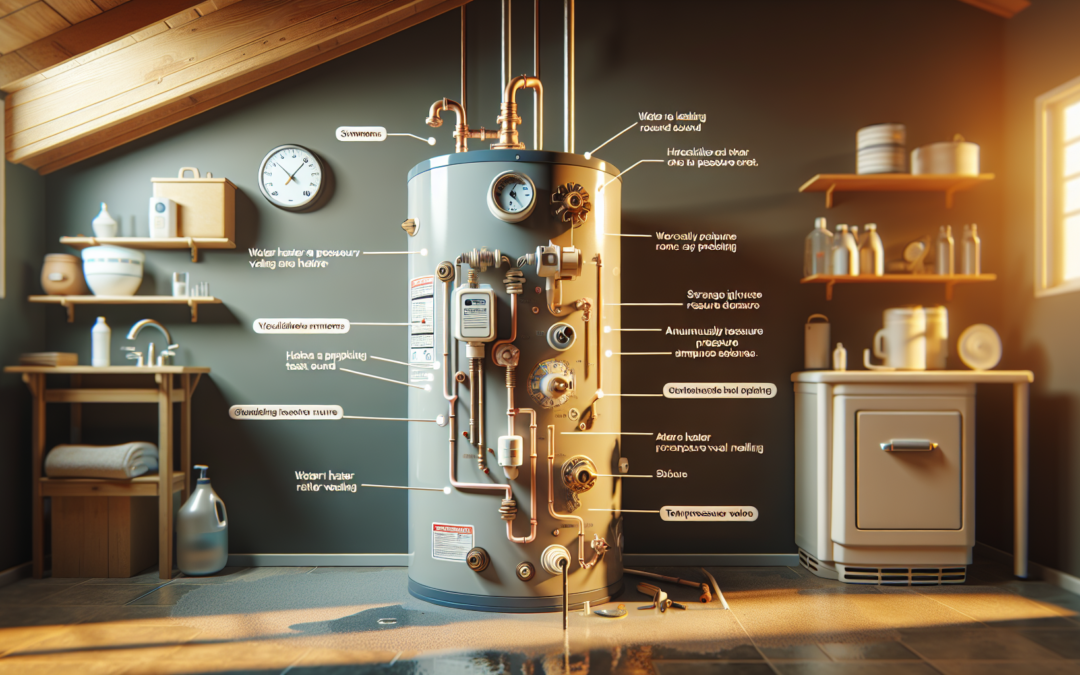Introduction
Your water heater is an essential part of your everyday life, silently and efficiently providing you with the hot water that you need for showers, cleaning, and other tasks. But like all appliances, it can experience problems, not least with its pressure relief valve. The function of the pressure relief valve is to safely vent excess pressure buildup within the water heater, preventing dangerous explosions and preserving the longevity of your water heater. But what happens when this critical component begins to fail?
Experienced Dayton plumbers know that understanding the symptoms of water heater pressure relief valve failure can help homeowners catch potential issues before they become serious, costly problems.
Quick Summary
Pressure relief valve failure symptoms include frequent dripping and leaking, loud or unusual noises, and a lack of hot water. If you notice any of these signs, consider contacting professionals for potential water heater repairs.
Continuous Dripping or Leaking
The most common sign of a failing pressure relief valve is continuous dripping or leaking water. This happens when the valve no longer adequately seals, allowing water to escape. It could be a slow, small leak or a persistent drip that never stops, even when the water heater isn’t running. If you are noticing water heater tank leaking, it might be due to a failing pressure relief valve.
While minor leaking can be common due to changes in water pressure, consistent or excessive leaking is not normal and should be addressed immediately to avoid further damage.
Loud or Unusual Noises
Your water heater should operate quietly. If you can hear unusual noises, it could be a sign of valve failure. These sounds may resemble hissing, popping, or rumbling. When the pressure valve fails, it may improperly release pressure, causing the water heater tank to make noise. This kind of gas water heater problem needs immediate attention.
Hearing such noises from your water heater is a definite sign something is wrong. Beyond this indicating a potential valve issue, such noises can also signal that there’s a buildup of minerals or hard water scale inside the tank.
Insufficient Hot Water
If your water heater isn’t providing enough hot water, or the water is lukewarm, it may be a sign of a failing pressure relief valve. This is often due to the valve not being able to regulate the pressure correctly, causing issues with water heating.
Remember, even an electric water heater having trouble producing hot water could have a failing pressure relief valve. Never ignore this symptom; consult with professionals to determine the cause of the problem.
Corrosion or Rusting
The presence of rust or corrosion is another common marker of a failing pressure valve. The corrosive elements can lead to valve damages over the years, leading to failure. If you notice any visible signs of corrosion, it’s advisable to have it replaced to avoid a total failure.
Remember, a faulty pressure relief valve cannot perform its function optimally. More serious problems can occur when the pressure inside the tank builds up uncontrollably, leading to an explosion. Promptly addressing and correcting signs of rust can prevent catastrophic events and expensive damages.
Regular Inspection is Crucial
To ensure the smooth operation of your water heater, it’s crucial to regularly inspect the pressure relief valve and other elements. An annual inspection by professional plumbers can spot potential problems before they become severe and costly. It’s always better to take precautionary measures and ensure the continued correct water heater size rather than repair or replace the unit later.
Through regular inspection and maintenance, homeowners can extend the life and efficiency of their water heaters, maintain their performance, and avoid unexpected breakdowns. Familiarizing yourself with the symptoms of failure can be highly beneficial and surely be money well spent.
Conclusion
Recognizing the signs of water heater pressure relief valve failure can ultimately protect you from hazardous situations, costly repairs, and unexpected cold showers. Paying attention to these warning signs and taking immediate action can make all the difference. So if you’re experiencing any concerns about your water heater’s performance or think you might be dealing with failed pressure valve symptoms, ensure you contact reliable professionals to check your system.
Whether you need diagnosing your water heater’s issues, seeking a routine inspection, or consider a complete water heater replacement, don’t hesitate to contact Dayton Plumbing Services. The health and safety of your water heater, and consequently your home, are our top priority. Get a quote today!

